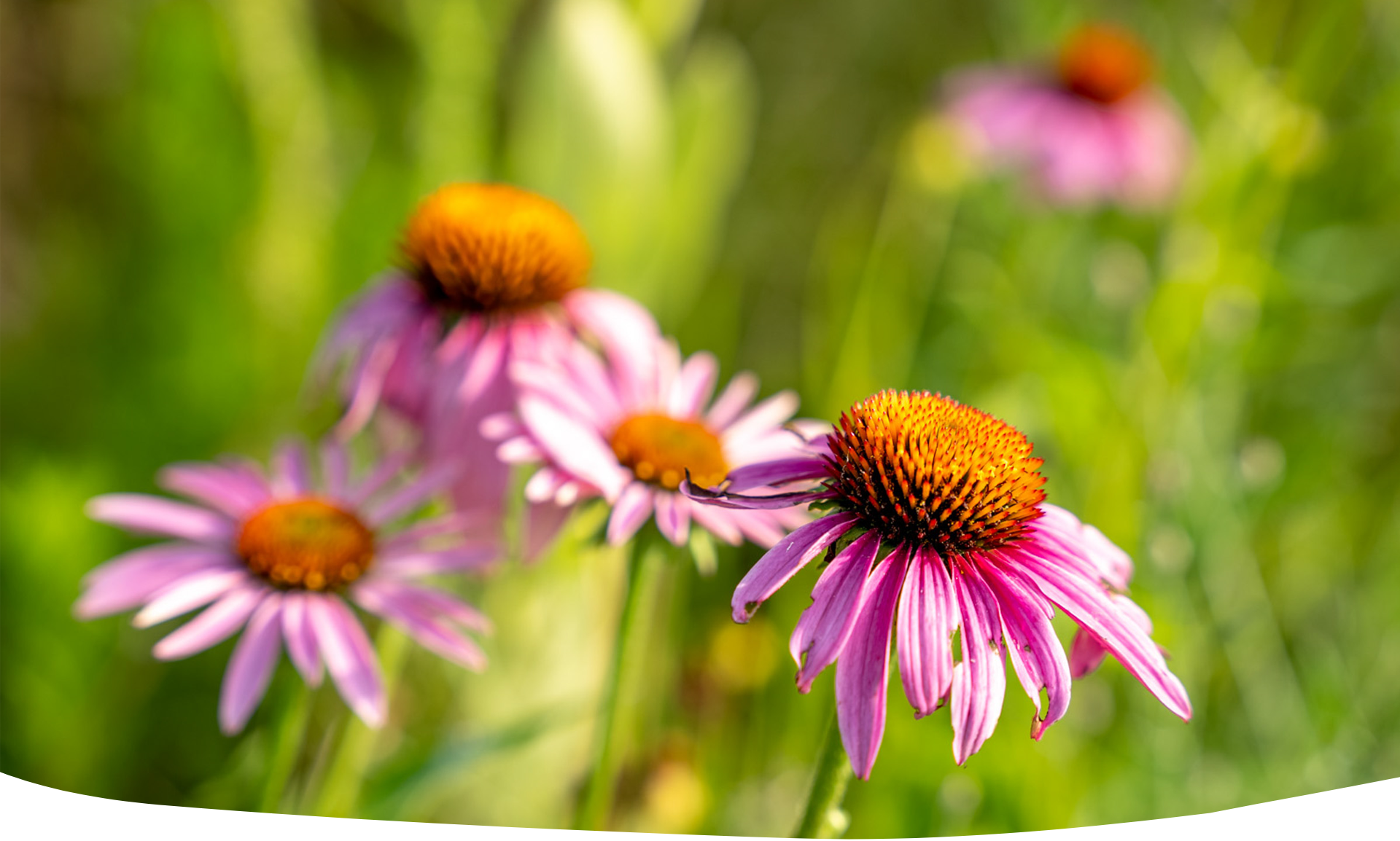
Rewilding Winchester
Sustainability Matters Native Meadow
Sustainability Matters and the Winchester Department of Parks and Recreation are excited to bring Winchester its first city-owned, pollinator-friendly native meadow. The first seeding took place in the spring of 2024, the Sustainability Matters Native Meadow will be a welcoming oasis to enjoy natural beauty, learn about ways to support the environment, and take outdoor classes ranging from painting to yoga.
We’re also scaling up our engagement with area schools—involving local students as meadow volunteers, citizen scientists, ambassadors, and apprentice educators. If you’re an educator and want to get your students involved in this exciting new project, please contact us!

planting native meadows for a preponderance of pollinators
A native meadow is a landscape dominated by plants indigenous to a specific region, including native grasses and wildflowers. These meadows reflect the historical plant diversity of an area, providing food and shelter to a host of local wildlife and native pollinators. Once established, native meadows require less maintenance than conventional lawns and gardens. They also provide far more value to the local ecosystem.
Many native meadows have been lost to urbanization and agricultural expansion in recent years, so we are thrilled the Winchester Parks and Recreation Department is joining us to plant for pollinators!
prioritizing native plants
Native meadows offer crucial habitat to threatened flora and fauna, as well as better erosion control and carbon sequestration.
Pollinators depend on native host plants for survival. Take caterpillars, for example. They’ve evolved to eat only very specific foods, such as monarch butterfly larvae eating milkweed. If an insect cannot find the food it needs, it simply starves to death, eliminating future generations of the species. Many native bees are also selective pollinators, relying heavily on specific native plants.
Native insects need native plants, and those insects serve as food for baby birds who need the high protein to grow. And the entire wild ecosystem needs habitat: a home in which to nest, to shelter from predators, and to spend the winter. This is why, once the meadow is established, you’ll see the plants’ drying stalks left standing tall all winter—that’s where butterflies, moths, bees, ladybugs, and other native insects are hibernating! And if you have a yard, you can also help these insects by not cutting away dead vegetation until the start of spring.

protecting pollinators
Pollinators—such as bees, butterflies, and birds—are critically important to us and our ecosystems. Unfortunately, their populations have been declining due to climate change, habitat loss, and pesticide use.
Pollinators are responsible for fertilizing flowers—enabling the production of fruits, vegetables, and nuts that make up a significant portion of our diets. Did you know that one in every three bites of food we eat exists because of pollinators like bees and butterflies? Global food security suffers when pollinators suffer!
Pollinators enhance ecosystem health—facilitating the reproduction of various plants, promoting biodiversity, and supporting the overall stability of ecosystems. These plants, in turn, provide habitats and food for other wildlife, creating interconnected and resilient ecosystems.
So, pollinators not only ensure our access to a diverse and nutritious diet but also contribute to the well-being of the entire natural world. Protecting and conserving pollinator species is vital for sustaining both our food supply and the health of our ecosystems.
perennial partnerships
This is a joint project of Sustainability Matters and the City of Winchester Department of Parks and Recreation.
This project is supported by the United States Environmental Protection Agency, Region 3; the Chesapeake Bay Program; the Chesapeake Bay Trust; the City of Winchester, Virginia; and Sustainability Matters’ members and donors.
This project builds on Sustainability Matters’ strong existing partnership with Winchester. For the past three years, we have partnered on recycling education and outreach funded by the Virginia Department of Environmental Quality, which each year has increased its financial commitment to our joint offerings because of our track record of successful, impactful programming.


